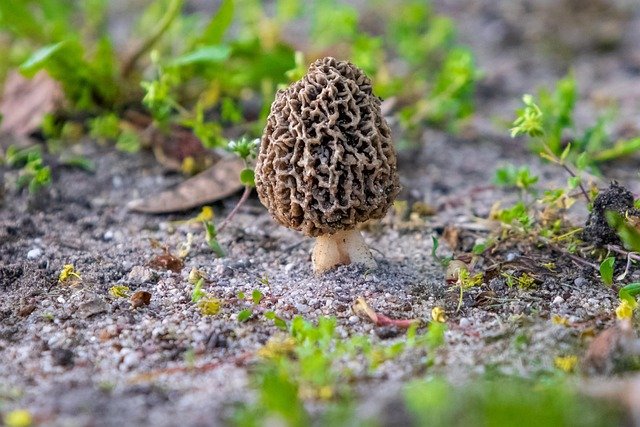Exploring the World Through Foraging Expeditions
Foraging expeditions are revolutionizing the way adventurous travelers experience destinations, offering a unique blend of culinary discovery, outdoor exploration, and cultural immersion. This emerging trend taps into the primal human instinct to gather food from nature, transforming it into a sophisticated travel experience that appeals to eco-conscious gourmands and nature enthusiasts alike. As more travelers seek authentic, hands-on experiences, foraging trips are gaining traction as a way to connect deeply with local ecosystems and traditional knowledge.

As travelers became more interested in the origins of their food, tour operators began offering guided foraging experiences. These trips combine the thrill of discovery with expert knowledge, allowing participants to learn about local flora, sustainable harvesting practices, and traditional uses of wild plants. From mushroom hunting in the Pacific Northwest to seaweed gathering along the coast of Ireland, foraging expeditions offer a unique lens through which to explore diverse ecosystems and culinary traditions.
The Appeal of Foraging Travel
Foraging expeditions cater to a growing desire for immersive, educational travel experiences that go beyond traditional sightseeing. Participants gain hands-on knowledge of local ecosystems, learning to identify edible plants, fungi, and sometimes even insects or small game. This intimate interaction with nature fosters a deeper appreciation for biodiversity and the delicate balance of ecosystems.
Moreover, foraging trips often incorporate elements of cultural exchange. Local guides share traditional ecological knowledge passed down through generations, offering insights into the medicinal and culinary uses of wild plants that have shaped regional cuisines and healing practices. This cultural component adds depth to the travel experience, allowing visitors to connect with local communities in meaningful ways.
Diverse Destinations and Experiences
Foraging expeditions span a wide range of environments and culinary traditions, offering something for every type of traveler. In the lush forests of Scandinavia, visitors can search for wild berries, herbs, and the prized cloudberry. The coastlines of Scotland and Ireland offer seaweed foraging trips, where participants learn about the nutritional benefits and culinary applications of various sea vegetables.
In more tropical climates, foraging takes on a different character. Jungle expeditions in places like Costa Rica or Thailand introduce travelers to exotic fruits, medicinal plants, and edible insects. These trips often combine foraging with lessons in traditional cooking methods, allowing participants to prepare and enjoy their wild-harvested ingredients.
Urban foraging tours have also gained popularity in cities like New York, London, and Berlin. These experiences challenge perceptions of urban environments, revealing edible plants growing in parks, abandoned lots, and even cracks in the sidewalk. Urban foraging highlights issues of food security and reconnects city dwellers with nature in unexpected ways.
Challenges and Considerations
While foraging expeditions offer unique travel experiences, they also come with challenges and ethical considerations. Sustainability is a primary concern, as increased interest in wild harvesting can put pressure on delicate ecosystems. Responsible tour operators emphasize conservation principles, teaching participants how to forage without depleting resources or disturbing wildlife habitats.
Safety is another crucial aspect of foraging travel. Guides must be highly knowledgeable about local flora to prevent accidental ingestion of toxic plants. Many foraging trips include lessons on proper identification techniques and safe harvesting practices.
Legal considerations also play a role in foraging tourism. Regulations regarding the collection of wild plants and fungi vary widely between countries and even local jurisdictions. Tour operators must navigate these legal landscapes to ensure their activities comply with local laws and conservation efforts.
The Future of Foraging Travel
As interest in sustainable and experiential travel continues to grow, foraging expeditions are likely to evolve and expand. Technology is playing an increasing role, with apps and digital field guides enhancing the foraging experience. Some tour operators are incorporating DNA barcoding technology to help identify plants and fungi with greater accuracy.
Foraging Expedition Essentials
-
Always go with a knowledgeable guide or expert
-
Respect local ecosystems and harvest sustainably
-
Learn proper identification techniques before consuming any wild foods
-
Bring appropriate gear: basket, gloves, knife, and field guide
-
Check local regulations regarding foraging in public areas
-
Be prepared for varying weather conditions
-
Document your findings with photos for future reference
-
Practice leave no trace principles to minimize environmental impact
Foraging expeditions represent a unique intersection of culinary adventure, ecological education, and cultural immersion. By engaging travelers in the ancient practice of gathering wild foods, these trips offer a profound way to connect with nature and local traditions. As the travel industry continues to evolve towards more sustainable and meaningful experiences, foraging expeditions stand out as a trend that nourishes both body and soul, offering a taste of the wild that lingers long after the journey ends.






